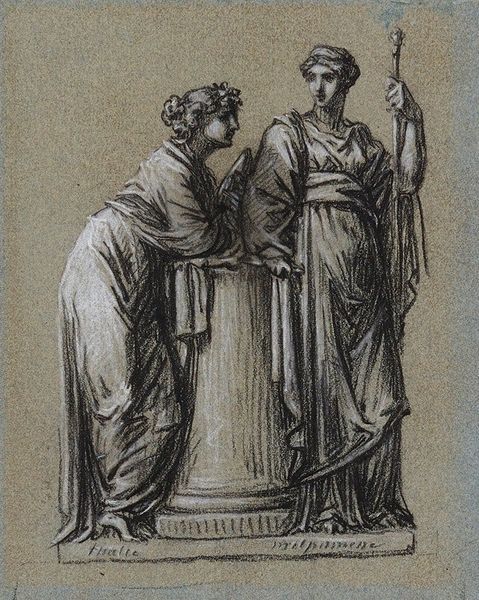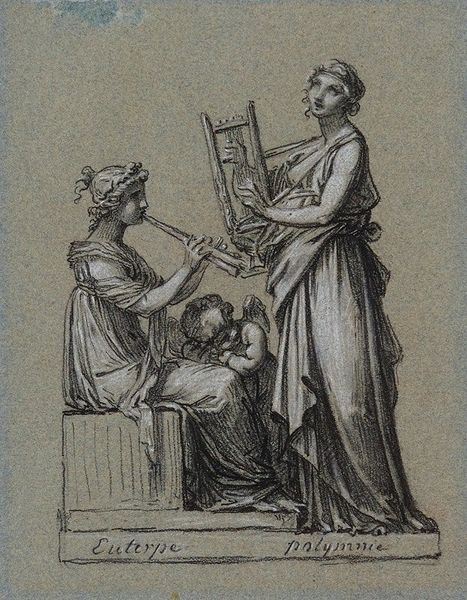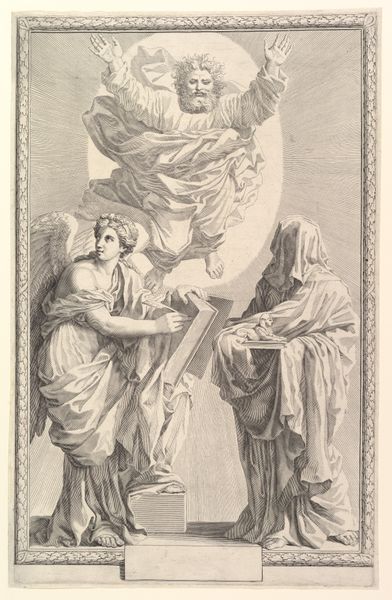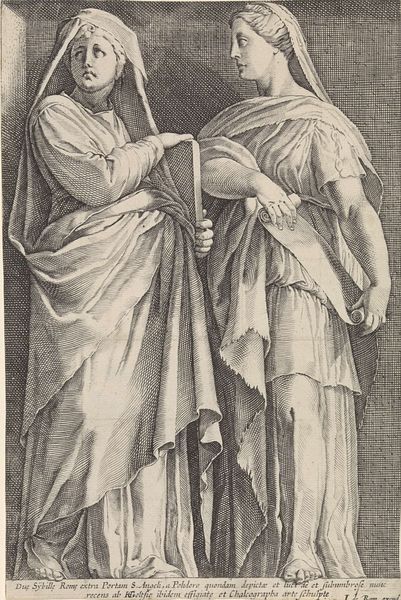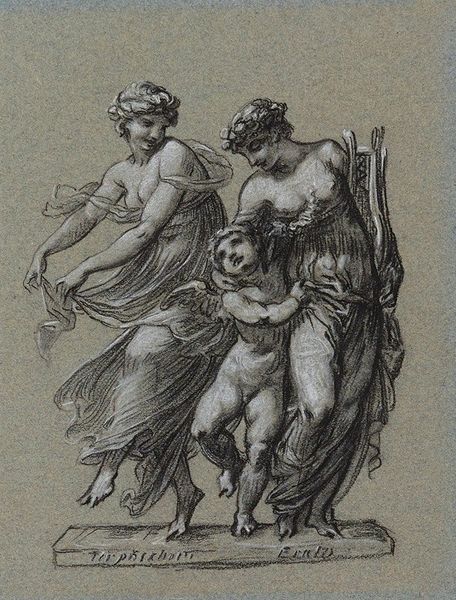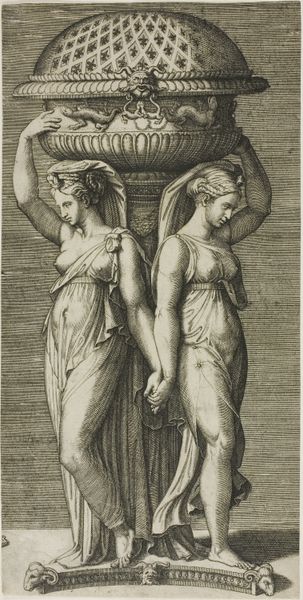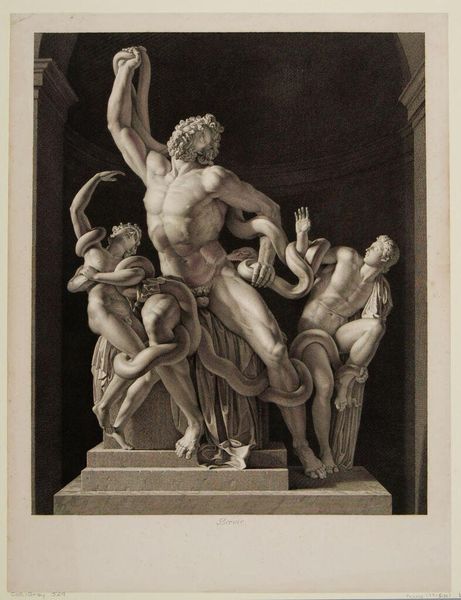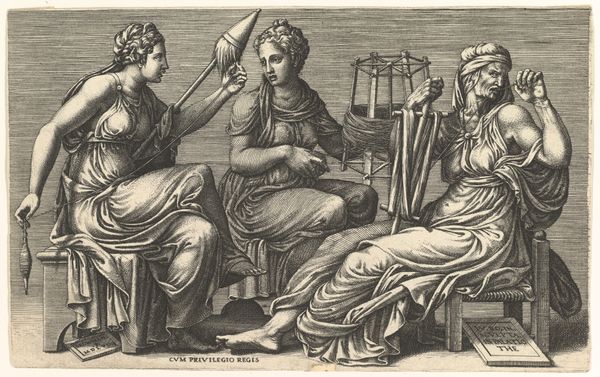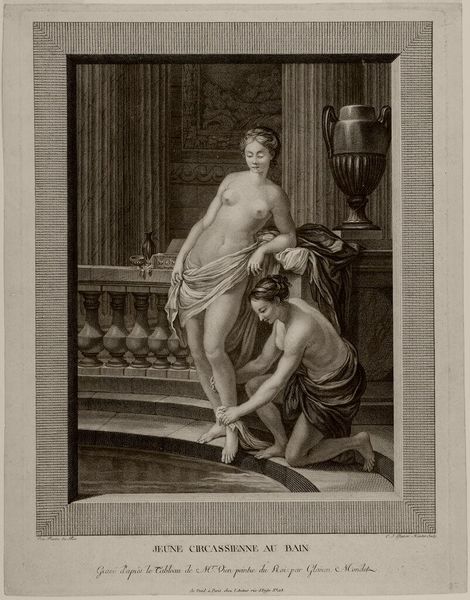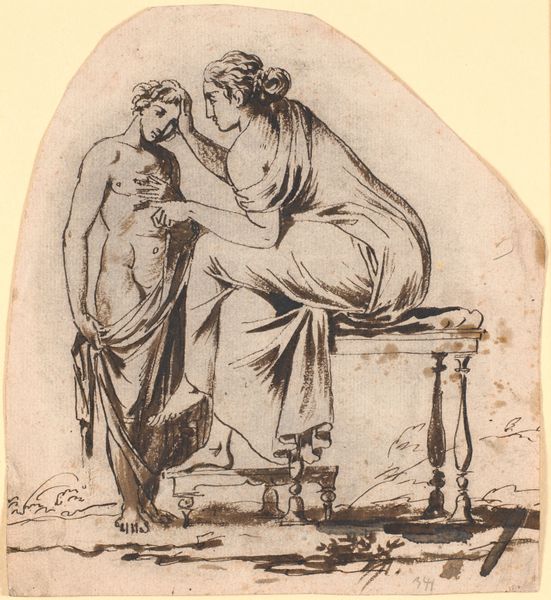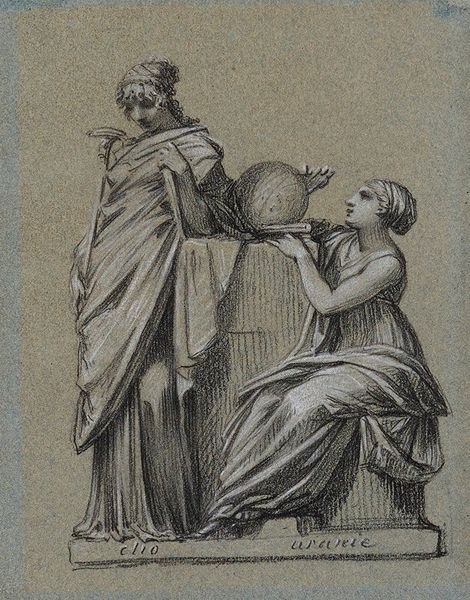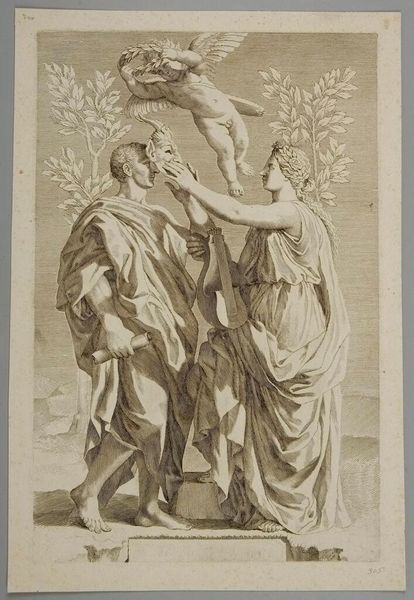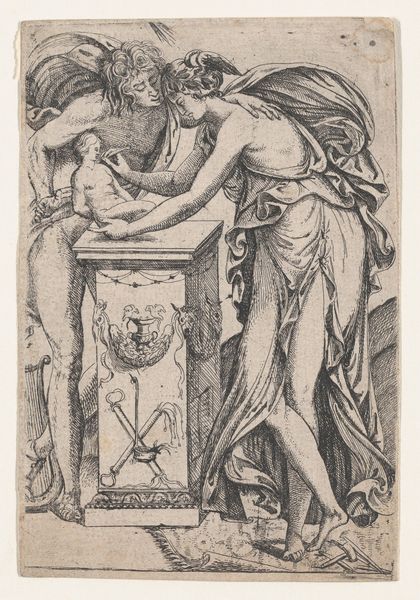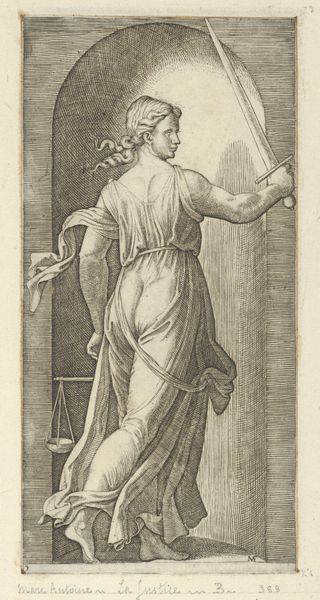
drawing, charcoal
#
drawing
#
neoclacissism
#
allegory
#
classical-realism
#
charcoal drawing
#
figuration
#
charcoal
#
history-painting
#
nude
Copyright: Public Domain: Artvee
Pierre-Paul Prud'hon created this drawing of Apollo and Calliope using charcoal and white chalk, likely in France. Prud'hon was working at a time when artists and intellectuals were trying to define the role of art in society. Apollo, the god of music and poetry, is shown alongside Calliope, the muse of epic poetry, suggesting the high value placed on artistic inspiration and achievement in French culture. Note, however, that their idealized forms also served a political purpose. In a post-revolutionary era, artists turned to classical imagery to promote social stability. Prud'hon's choice of medium emphasizes draftsmanship, echoing academic traditions in art education and linking him to a broader set of cultural institutions. By considering his artistic influences, the social and political context, and the institutional backdrop, we can begin to better understand this drawing's significance. The historical interpretation of art relies on exploring these contextual details.
Comments
No comments
Be the first to comment and join the conversation on the ultimate creative platform.
